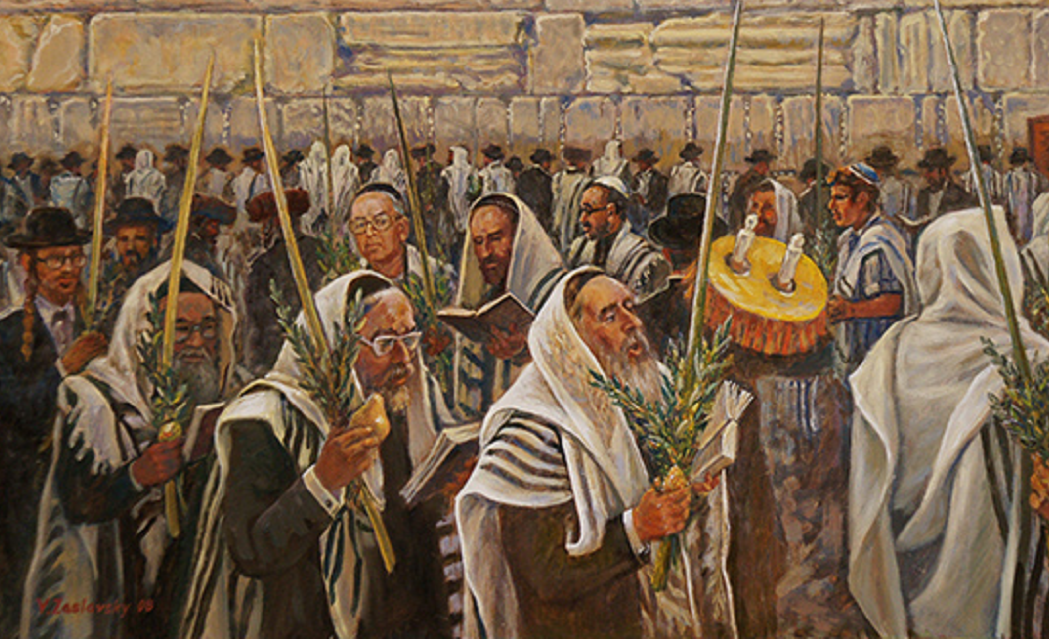
The Man of Compassion
What do we look for in a leader? Rebbe Nachman teaches that a true leader must be a man of compassion, but he be uncompromising with evil people, murderers, and thieves.

Chambers of the Palace, Part 13
Rebbe Nachman on the qualities of a true leader
“He who has compassion on them will lead them” (Isaiah 49:10).
A person who has compassion is fit to be a leader.
He must know how to handle his compassion. One may not be compassionate to evil people, murderers or thieves. Also, if a person doesn’t know how to handle his compassion, he may decide to give a four-day-old baby food fit for someone older. Such a baby must be fed only milk.
One must know how to handle one’s compassion. When one is compassionate to a baby, one gives him milk, and when one is compassionate to an older person, one gives him food fit for him. Similarly, one must be compassionate for everyone by giving him what he needs.
2. Only Moses was this type of compassionate person. He was the leader of Israel, and he will be the leader in the future. “That which was will be” (Ecclesiastes 1:4).
Moses had true compassion for Israel. He sacrificed himself for the sake of Israel and was ready to cast away his life without a moment’s consideration for himself. God told him, “I will make you a great nation,” (Exodus 32:10). But he did not pay any attention. Instead, he said, “Please forgive their sin” (Ibid. 32).
He was a true, compassionate leader, and he worked for the good of the world so that the world would be civilized.
This is because the essence of a person is his understanding.
Whoever doesn’t have understanding is not considered part of civilization, and is not even a human being. He is only an animal in human form.
Moses had compassion, and he worked for the sake of spreading civilization, so that the world should be populated by human beings, by people with understanding.
He opened the light of understanding for us, as in the verse, “You have seen to understand that the Lord is God” (Deuteronomy 4:35).
Moses opened up understanding and revealed that there is a God Who rules the earth.
3. The essential quality of compassion is to realize that when Israel (which is a holy nation) sins, that is the most pitiful thing.
The worst sufferings in the world are nothing compared to the heavy burden of sins.
When Israel sins, it has to carry an unbearably heavy burden. As the verse states, “Like a heavy burden, [my sins] are too heavy for me” (Psalms 38:5).
When a person realizes the holiness of Israel—the Jews’ supernal source, their spirituality and their extraordinary qualities—he knows that Israel is completely removed from sin, and that in the context of their extraordinary essential holiness, they have nothing to do with sin.
Therefore, all the sufferings in the world are considered as nothing in relation to the weight of sins.
Even if a person suffers, as long as those sufferings aren’t a result of sinning, they are not even considered suffering. This is on the level of the statement, “There is no suffering without sin” (Shabbat 55a)—if the experiences aren’t a result of sin, they are not suffering. The essence of suffering is only related to sin. That is the most pitiable thing. One must have compassion on Israel, a holy nation, and draw them out from under the heavy weight of sin.
Whenever the Jews committed a sin, Moses would sacrifice himself for their sake and pray for them.
He knew that in relation to their holiness and extraordinary qualities, they are far removed from sin, and they cannot bear its heavy burden.
Where do sins come from? They are a result of a lack of understanding. “A man does not commit a sin unless a spirit of folly has entered into him” (Sotah 3a). This is the greatest pity of all. One must have compassion on a person who has sinned and fill him with understanding. The verse states, “Fortunate is the one who gives wisdom to the poor” (Psalms 41:2). Our sages said that “Poverty refers to [lack of] understanding” (Nedarim 41a). One must have compassion on this person and fill him with understanding. (Likutei Moharan II, 7)
***
From “Chambers of the Palace”, an anthology of Rebbe Nachman’s writings abridged and translated by Yaacov Dovid Shulman. Writer, translator, and editor Yaacov Dovid Shulman can be contacted at: yacovdavid@gmail.com.












Tell us what you think!
Thank you for your comment!
It will be published after approval by the Editor.